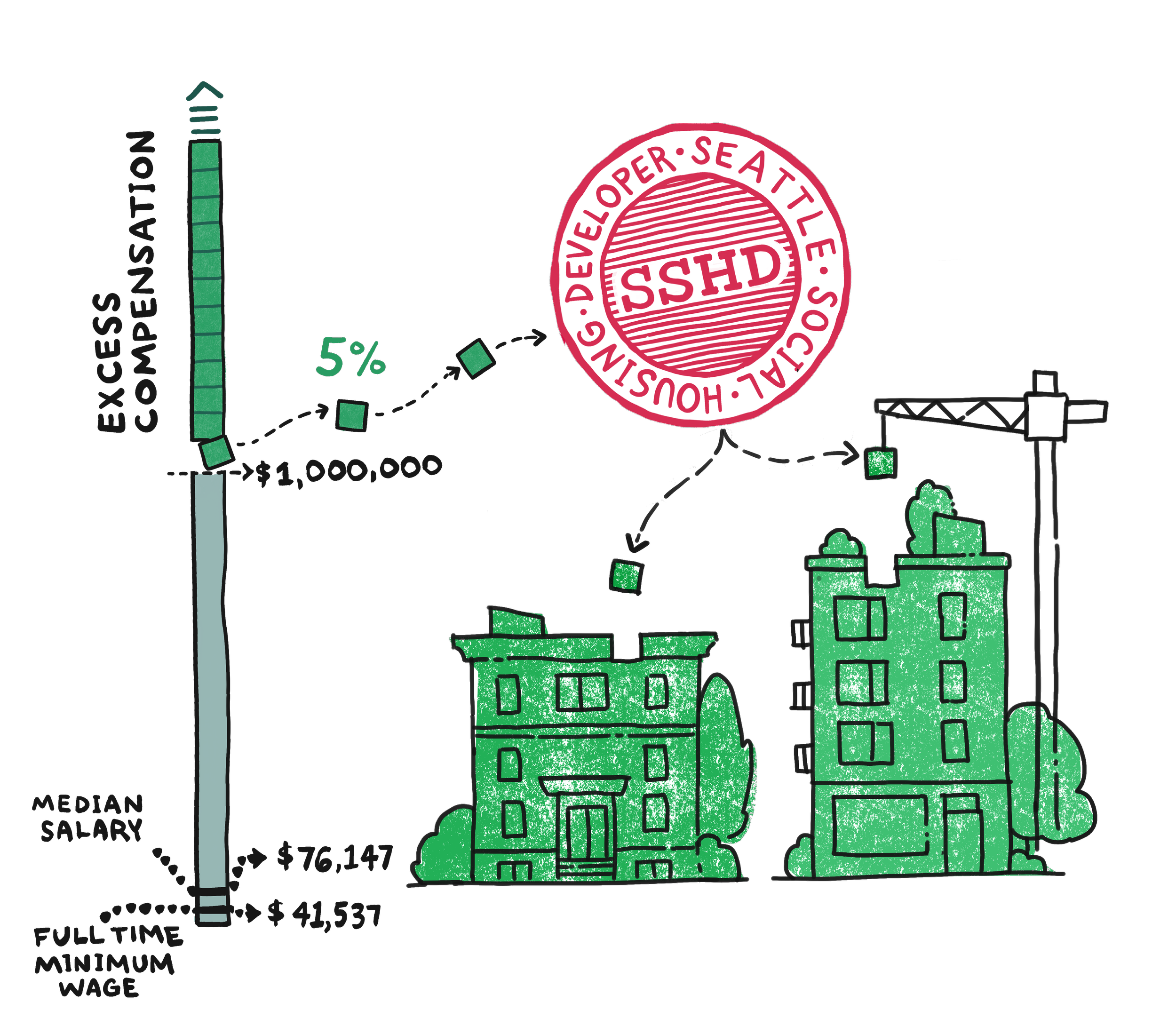An employer paid excess compensation payroll tax to fund social housing
Employers who purchase the labor of highly compensated workers above a $1 million in total compensation will pay a 5% marginal tax. Employers pay the social housing payroll tax, not employees.
The money from the excess compensation tax can be used to construct and acquire buildings for social housing, fund operations and maintenance of buildings, and staff up the Seattle Social Housing Developer (SSHD).
This initiative will create an annual, dedicated revenue stream for social housing in Seattle. This revenue stream can then be bonded on to accelerate production of social housing.
How can revenue from the Excess Compensation Payroll Tax be used?
Below is a model business plan for the next 10 years.
In 10 years, the Social Housing Payroll Tax could fund 2000 units of social housing
This analysis was completed using the following assumptions:
Total development cost per unit of $350,000 for acquisitions and $600,000 for development
Assuming payroll tax revenue is used to make equity investments and all other financing is provided by traditional commercial real estate loans
Mix of development vs acquisition is illustrative and not intended to imply any particular strategy
Does not include any other funding sources (green building grants under the Inflation Reduction Act, state funding, etc.)
Does not assume any cash-out refinancing, which could other return equity to be used to further fund development and acquisition
Does not reflect the ability for the SSHD to bond
Does not take into account inflation of construction costs, rents, overhead, or payroll tax revenues
Does not assume any gifting of public land for new construction
Potential Area Median Income Breakdown
This is a hypothetical business plan for how the Seattle Social Housing Developer (SSHD) could spend the Social Housing Payroll Tax. House Our Neighbors does not have decision-making power over the SSHD, but is producing a hypothetical plan to show voters, and the general public, how these funds could be used to build up our city’s stock of social housing.





